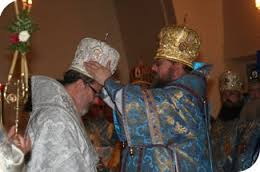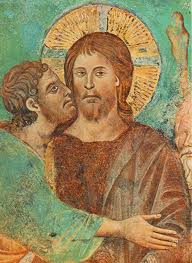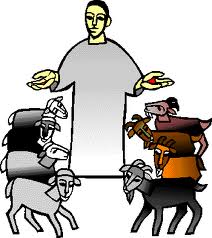 What the Bible says about spiritual DEATH
What the Bible says about spiritual DEATH
Our choice when it comes to our permanent future seems to be a) eternal life, or b) eternal death. If the first realm is eternal (staying alive for ever in the kingdom of God) it makes sense to assume that also the latter realm is equally eternal (staying dead and non-existent for ever). Note that I do not believe that the process of dying will last for ever but rather the duration of being dead – as in a permanent irrevocable death and complete non-existence. If the whole process of dying would last for ever, then this too could be labelled “eternal life”, albeit in agony and torture. The Bible, however, explains that our choice is either life or death. Not life or life.
There is no doubt, however, that unbelievers risk being burned in the fire that we call hell (see verses below) unless they repent. Nevertheless, the exact duration (and degrees) of this suffering is unknown and up for debate. We do know that books will be opened and proper judgments will be made, and also that the place called Hades will finally be thrown in the lake of fire (often called Gehenna). The lake of fire is the second death. Hades appears to have two sections (and good and one bad) and this is where Lazarus ended up, as per Luke 16:20-25.
The Greek adjective αἰώνιος (aiónios, Strong’s 166) derives from the noun aiṓn (Strong’s 165), and even though it is often translated “eternal” it does not always refer to something that will last non-stop. Even God’s covenant with Israel was “eternal”, and yet it no longer applies.
Bible verses where everlasting life is contrasted with death and corruption
The Bible contrasts “everlasting life” with corruption and death. If you live in shameful sin you will end up with death, and if you are the servant of God you will end up with the opposite, which is everlasting life.
Gal. 6:8 For he that soweth to his flesh shall of the flesh reap CORRUPTION; but he that soweth to the Spirit shall of the Spirit reap LIFE EVERLASTING.9 And let us not be weary in well doing: for in due season we shall reap, if we faint not.
Rom. 6:16 Know ye not, that to whom ye yield yourselves servants to obey, his servants ye are to whom ye obey; whether of SIN UNTO DEATH, OR OF OBEDIENCE UNTO RIGHTEOUSNESS? — 21 What fruit had ye then in those things whereof ye are now ashamed? for the end of those things is DEATH.22 But now being made free from sin, and become servants to God, ye have your fruit unto holiness, and THE END EVERLASTING LIFE.23 For THE WAGES OF SIN IS DEATH; but the gift of God is ETERNAL LIFE through Jesus Christ our Lord.
Rom. 8:2 For the law of the Spirit of life in Christ Jesus hath made me free from the law of sin and death.— 6 For TO BE CARNALLY MINDED IS DEATH; but to be spiritually minded is LIFE and peace. — 9 But ye are not in the flesh, but in the Spirit, if so be that the Spirit of God dwell in you. Now if any man have not the Spirit of Christ, he is none of his. — 13 For IF YE LIVE AFTER THE FLESH, YE SHALL DIE: BUT IF YE THROUGH THE SPIRIT DO MORTIFY THE DEEDS OF THE BODY, YE SHALL LIVE.
John 6:21 For as the Father raiseth up the dead, and quickeneth them; even so the Son quickeneth whom he will. — 24 Verily, verily, I say unto you, He that heareth my word, and believeth on him that sent me, hath everlasting life, and shall not come into condemnation; but is passed from death unto life.25 Verily, verily, I say unto you, The hour is coming, and now is, when the dead shall hear the voice of the Son of God: and they that hear shall live. — 28 Marvel not at this: for the hour is coming, in the which all that are in the graves shall hear his voice,29 And shall come forth; they that have done good, UNTO THE RESURRECTION OF LIFE; and they that have done evil, UNTO THE RESURRECTION OF DAMNATION.
Matt. 22:2 The kingdom of heaven is like unto a certain king, which made a marriage for his son, — 7 But when the king heard thereof, he was wroth: and he sent forth his armies, and destroyed those murderers, and burned up their city.8 Then saith he to his servants, The wedding is ready, but they which were bidden were not worthy.9 Go ye therefore into the highways, and as many as ye shall find, bid to the marriage.10 So those servants went out into the highways, and gathered together all as many as they found, both bad and good: and the wedding was furnished with guests.11 And when the king came in to see the guests, he saw there a man which had not on a wedding garment:12 And he saith unto him, Friend, how camest thou in hither not having a wedding garment? And he was speechless.13 Then said the king to the servants, Bind him hand and foot, and take him away, and cast him into outer darkness, there shall be weeping and gnashing of teeth.14 For many are called, but few are chosen.
Matt. 25:30 And cast ye the unprofitable servant into outer darkness: there shall be weeping and gnashing of teeth.31 When the Son of man shall come in his glory, and all the holy angels with him, then shall he sit upon the throne of his glory:32 And before him shall be gathered all nations: and he shall separate them one from another, as a shepherd divideth his sheep from the goats:33 And he shall set the sheep on his right hand, but the goats on the left.34 Then shall the King say unto them on his right hand, Come, ye blessed of my Father, inherit the kingdom prepared for you from the foundation of the world:35 For I was an hungred, and ye gave me meat: I was thirsty, and ye gave me drink: I was a stranger, and ye took me in:—41 Then shall he say also unto them on the left hand, Depart from me, ye cursed, into everlasting fire, prepared for the devil and his angels:42 For I was an hungred, and ye gave me no meat: I was thirsty, and ye gave me no drink:—46 And these shall go away into EVERLASTING PUNISHMENT: but the righteous into LIFE ETERNAL.
John 3:3 Jesus answered and said unto him, Verily, verily, I say unto thee, Except a man be born again, he cannot see the kingdom of God.—5 Jesus answered, Verily, verily, I say unto thee, Except a man be born of water and of the Spirit, he cannot enter into the kingdom of God.6 That which is born of the flesh is flesh; and that which is born of the Spirit is spirit. — 14 And as Moses lifted up the serpent in the wilderness, even so must the Son of man be lifted up:15 That whosoever believeth in him should not perish, but have eternal life.16 For God so loved the world, that he gave his only begotten Son, that whosoever believeth in him should not perish, but have everlasting life.17 For God sent not his Son into the world to condemn the world; but that the world through him might be saved.18 He that believeth on him is not condemned: but he that believeth not is condemned already, because he hath not believed in the name of the only begotten Son of God.19 And this is the condemnation, that light is come into the world, and men loved darkness rather than light, because their deeds were evil.20 For every one that doeth evil hateth the light, neither cometh to the light, lest his deeds should be reproved.21 But he that doeth truth cometh to the light, that his deeds may be made manifest, that they are wrought in God. — 36 He that believeth on the Son hath EVERLASTING LIFE: and he that believeth not the Son SHALL NOT SEE LIFE; but the wrath of God abideth on him.
Matt. 18:6 But whoso shall offend one of these little ones which believe in me, it were better for him that a millstone were hanged about his neck, and that he were drowned in the depth of the sea.7 Woe unto the world because of offences! for it must needs be that offences come; but woe to that man by whom the offence cometh!8 Wherefore if thy hand or thy foot offend thee, cut them off, and cast them from thee: it is better for thee to enter into LIFE halt or maimed, rather than having two hands or two feet to be cast into EVERLASTING FIRE.9 And if thine eye offend thee, pluck it out, and cast it from thee: it is better for thee to enter into life with one eye, rather than having two eyes to be cast into hell fire.
John 6:27 Labour not for the meat which perisheth, but for that meat which endureth unto EVERLASTING LIFE, which the Son of man shall give unto you: for him hath God the Father sealed.
John 6:39 And this is the Father’s will which hath sent me, that of all which he hath given me I should lose nothing, but should raise it up again at the last day.40 And this is the will of him that sent me, that every one which seeth the Son, and believeth on him, may have everlasting life: and I will raise him up at the last day. — 44 No man can come to me, except the Father which hath sent me draw him: and I will raise him up at the last day. — 47 Verily, verily, I say unto you, He that believeth on me hath everlasting life. — 49 Your fathers did eat manna in the wilderness, and are DEAD.50 This is the bread which cometh down from heaven, that a man may eat thereof, and not die.51 I am the living bread which came down from heaven: if any man eat of this bread, HE SHALL LIVE FOR EVER: and the bread that I will give is my flesh, which I will give for the life of the world. — 53 Then Jesus said unto them, Verily, verily, I say unto you, Except ye eat the flesh of the Son of man, and drink his blood, ye have no life in you.54 Whoso eateth my flesh, and drinketh my blood, hath eternal life; and I will raise him up at the last day. — 56 He that eateth my flesh, and drinketh my blood, dwelleth in me, and I in him. — 58 This is that bread which came down from heaven: not as your fathers did eat manna, and are dead: he that eateth of this bread shall live for ever. — 63 It is the spirit that quickeneth; the flesh profiteth nothing: the words that I speak unto you, they are spirit, and they are life.
Acts 13:46 Then Paul and Barnabas waxed bold, and said, It was necessary that the word of God should first have been spoken to you: but seeing ye put it from you, and judge yourselves UNWORTHY OF EVERLASTING LIFE, lo, we turn to the Gentiles.
Matt. 18:18 Verily I say unto you, Whatsoever ye shall bind on earth shall be bound in heaven: and whatsoever ye shall loose on earth shall be loosed in heaven. –— 26 The servant therefore fell down, and worshipped him, saying, Lord, have patience with me, and I will pay thee all.27 Then the lord of that servant was moved with compassion, and loosed him, and forgave him the debt.28 But the same servant went out, and found one of his fellowservants, which owed him an hundred pence: and he laid hands on him, and took him by the throat, saying, Pay me that thou owest.29 And his fellowservant fell down at his feet, and besought him, saying, Have patience with me, and I will pay thee all.30 And he would not: but went and cast him into prison, till he should pay the debt.31 So when his fellowservants saw what was done, they were very sorry, and came and told unto their lord all that was done.32 Then his lord, after that he had called him, said unto him, O thou wicked servant, I forgave thee all that debt, because thou desiredst me:33 Shouldest not thou also have had compassion on thy fellowservant, even as I had pity on thee?34 And his lord was wroth, and delivered him to the tormentors, till he should pay all that was due unto him.35 So likewise shall my heavenly Father do also unto you, if ye from your hearts forgive not every one his brother their trespasses.
John 15:6 If a man abide not in me, he is cast forth as a branch, and is withered; and men gather them, and cast them into the fire, and they are burned.
Matt. 13:30 Let both grow together until the harvest: and in the time of harvest I will say to the reapers, Gather ye together first the tares, and bind them in bundles to burn them: but gather the wheat into my barn. — 38 The field is the world; the good seed are the children of the kingdom; but the tares are the children of the wicked one;39 The enemy that sowed them is the devil; the harvest is the end of the world; and the reapers are the angels.40 As therefore the tares are gathered and burned in the fire; so shall it be in the end of this world.41 The Son of man shall send forth his angels, and they shall gather out of his kingdom all things that offend, and them which do iniquity;42 And shall cast them into a furnace of fire: there shall be wailing and gnashing of teeth.43 Then shall the righteous shine forth as the sun in the kingdom of their Father. Who hath ears to hear, let him hear.
Matt. 23:33 Ye serpents, ye generation of vipers, how can ye escape the damnation of hell?
Matt. 10:28 And fear not them which kill the body, but are not able to kill the soul: but rather fear him which is able to destroy both soul and body in hell (Gehenna).
Luke 12:4 And I say unto you my friends, Be not afraid of them that kill the body, and after that have no more that they can do.5 But I will forewarn you whom ye shall fear: Fear him, which after he hath killed hath power to cast into hell; yea, I say unto you, Fear him.
Rev. 20:12 And I saw the dead, small and great, stand before God; and the books were opened: and another book was opened, which is the book of life: and the dead were judged out of those things which were written in the books, according to their works.13 And the sea gave up the dead which were in it; and death and hell delivered up the dead which were in them: and they were judged every man according to their works.14 And death and hell were cast into the lake of fire. This is the second death.15 And whosoever was not found written in the book of life was cast into the lake of fire.
Rev. 21:7 He that overcometh shall inherit all things; and I will be his God, and he shall be my son.8 But the fearful, and unbelieving, and the abominable, and murderers, and whoremongers, and sorcerers, and idolaters, and all liars, shall have their part in the lake which burneth with fire and brimstone: which is the second death.
Clues from the old testament
Gen. 2:1 But of the tree of the knowledge of good and evil, thou shalt not eat of it: for in the day that thou eatest thereof thou shalt surely die.
Job 14:14 If a man die, shall he live again? all the days of my appointed time will I wait, till my change come.
Below are two long sections from Ezekiel which are key to understanding the issue of life and death, particularly from the perspective of the old testament before Jesus’s entrance on earth. All souls are God’s souls and everyone must give an account before God in the future, but the soul that sins – and that does not repent before it is too late – shall apparently die. This is naturally not about a physical death since ALL human beings will eventually die one day (sinners or not), but the below verses have a focus on a spiritual death.
Ez. 18:4 Behold, all souls are mine; as the soul of the father, so also the soul of the son is mine: the soul that sinneth, it shall die.5 But if a man be just, and do that which is lawful and right,— 9 Hath walked in my statutes, and hath kept my judgments, to deal truly; he is just, he shall surely live, saith the Lord God.10 If he beget a son that is a robber, a shedder of blood, and that doeth the like to any one of these things,—13 Hath given forth upon usury, and hath taken increase: shall he then live? he shall not live: he hath done all these abominations; he shall surely die; his blood shall be upon him.14 Now, lo, if he beget a son, that seeth all his father’s sins which he hath done, and considereth, and doeth not such like,—17 That hath taken off his hand from the poor, that hath not received usury nor increase, hath executed my judgments, hath walked in my statutes; he shall not die for the iniquity of his father, he shall surely live.18 As for his father, because he cruelly oppressed, spoiled his brother by violence, and did that which is not good among his people, lo, even he shall die in his iniquity.19 Yet say ye, Why? doth not the son bear the iniquity of the father? When the son hath done that which is lawful and right, and hath kept all my statutes, and hath done them, he shall surely live.20 The soul that sinneth, it shall die. The son shall not bear the iniquity of the father, neither shall the father bear the iniquity of the son: the righteousness of the righteous shall be upon him, and the wickedness of the wicked shall be upon him.21 But if the wicked will turn from all his sins that he hath committed, and keep all my statutes, and do that which is lawful and right, he shall surely live, he shall not die.22 All his transgressions that he hath committed, they shall not be mentioned unto him: in his righteousness that he hath done he shall live.23 Have I any pleasure at all that the wicked should die? saith the Lord God: and not that he should return from his ways, and live?24 But when the righteous turneth away from his righteousness, and committeth iniquity, and doeth according to all the abominations that the wicked man doeth, shall he live? All his righteousness that he hath done shall not be mentioned: in his trespass that he hath trespassed, and in his sin that he hath sinned, in them shall he die.25 Yet ye say, The way of the Lord is not equal. Hear now, O house of Israel; Is not my way equal? are not your ways unequal?26 When a righteous man turneth away from his righteousness, and committeth iniquity, and dieth in them; for his iniquity that he hath done shall he die.27 Again, when the wicked man turneth away from his wickedness that he hath committed, and doeth that which is lawful and right, he shall save his soul alive.28 Because he considereth, and turneth away from all his transgressions that he hath committed, he shall surely live, he shall not die.29 Yet saith the house of Israel, The way of the Lord is not equal. O house of Israel, are not my ways equal? are not your ways unequal?30 Therefore I will judge you, O house of Israel, every one according to his ways, saith the Lord God. Repent, and turn yourselves from all your transgressions; so iniquity shall not be your ruin.31 Cast away from you all your transgressions, whereby ye have transgressed; and make you a new heart and a new spirit: for why will ye die, O house of Israel?32 For I have no pleasure in the death of him that dieth, saith the Lord God: wherefore turn yourselves, and live ye.
Ez. 33:5 He heard the sound of the trumpet, and took not warning; his blood shall be upon him. But he that taketh warning shall deliver his soul.6 But if the watchman see the sword come, and blow not the trumpet, and the people be not warned; if the sword come, and take any person from among them, he is taken away in his iniquity; but his blood will I require at the watchman’s hand.7 So thou, O son of man, I have set thee a watchman unto the house of Israel; therefore thou shalt hear the word at my mouth, and warn them from me.8 When I say unto the wicked, O wicked man, thou shalt surely die; if thou dost not speak to warn the wicked from his way, that wicked man shall die in his iniquity; but his blood will I require at thine hand.9 Nevertheless, if thou warn the wicked of his way to turn from it; if he do not turn from his way, he shall die in his iniquity; but thou hast delivered thy soul.10 Therefore, O thou son of man, speak unto the house of Israel; Thus ye speak, saying, If our transgressions and our sins be upon us, and we pine away in them, how should we then live?11 Say unto them, As I live, saith the Lord God, I have no pleasure in the death of the wicked; but that the wicked turn from his way and live: turn ye, turn ye from your evil ways; for why will ye die, O house of Israel?12 Therefore, thou son of man, say unto the children of thy people, The righteousness of the righteous shall not deliver him in the day of his transgression: as for the wickedness of the wicked, he shall not fall thereby in the day that he turneth from his wickedness; neither shall the righteous be able to live for his righteousness in the day that he sinneth.13 When I shall say to the righteous, that he shall surely live; if he trust to his own righteousness, and commit iniquity, all his righteousnesses shall not be remembered; but for his iniquity that he hath committed, he shall die for it.14 Again, when I say unto the wicked, Thou shalt surely die; if he turn from his sin, and do that which is lawful and right;15 If the wicked restore the pledge, give again that he had robbed, walk in the statutes of life, without committing iniquity; he shall surely live, he shall not die.16 None of his sins that he hath committed shall be mentioned unto him: he hath done that which is lawful and right; he shall surely live.17 Yet the children of thy people say, The way of the Lord is not equal: but as for them, their way is not equal.18 When the righteous turneth from his righteousness, and committeth iniquity, he shall even die thereby.19 But if the wicked turn from his wickedness, and do that which is lawful and right, he shall live thereby.
“Contempt” below is a translation from the Hebrews noun deraon, which can also be translated aversion or abhorrence (Strong’s 1860). It is also used in Is. 66:24.
Dan. 12:1 And at that time shall Michael stand up, the great prince which standeth for the children of thy people: and there shall be a time of trouble, such as never was since there was a nation even to that same time: and at that time thy people shall be delivered, every one that shall be found written in the book.2 And many of them that sleep in the dust of the earth shall awake, some to everlasting life, and some to shame and everlasting contempt.3 And they that be wise shall shine as the brightness of the firmament; and they that turn many to righteousness as the stars for ever and ever.
Is. 66:21 And I will also take of them for priests and for Levites, saith the Lord.22 For as the new heavens and the new earth, which I will make, shall remain before me, saith the Lord, so shall your seed and your name remain.23 And it shall come to pass, that from one new moon to another, and from one sabbath to another, shall all flesh come to worship before me, saith the Lord.24 And they shall go forth, and look upon the carcases of the men that have transgressed against me: for their worm shall not die, neither shall their fire be quenched; and they shall be an abhorring unto all flesh.
Eccl. 9:5 For the living know that they shall die: but the dead know not any thing, neither have they any more a reward; for the memory of them is forgotten.
 The kingdom of God is only for those who repent
The kingdom of God is only for those who repent
You will only enter the kingdom of God if you repent and become born again.
Matt. 18:3 And said, Verily I say unto you, Except ye be converted, and become as little children, ye shall not enter into the kingdom of heaven.
Matt. 19:29 And every one that hath forsaken houses, or brethren, or sisters, or father, or mother, or wife, or children, or lands, for my name’s sake, shall receive an hundredfold, and shall inherit everlasting life.
Luke 18:29 And he said unto them, Verily I say unto you, There is no man that hath left house, or parents, or brethren, or wife, or children, for the kingdom of God’s sake,30 Who shall not receive manifold more in this present time, and in the world to come life everlasting.
Matt. 25:10 And while they went to buy, the bridegroom came; and they that were ready went in with him to the marriage: and the door was shut.11 Afterward came also the other virgins, saying, Lord, Lord, open to us.12 But he answered and said, Verily I say unto you, I know you not.
John 11:26 And whosoever liveth and believeth in me shall never die. Believest thou this?
Gal 5:19 Now the works of the flesh are manifest, which are these; Adultery, fornication, uncleanness, lasciviousness,20 Idolatry, witchcraft, hatred, variance, emulations, wrath, strife, seditions, heresies,21 Envyings, murders, drunkenness, revellings, and such like: of the which I tell you before, as I have also told you in time past, that they which do such things shall not inherit the kingdom of God.
Rom. 6:8 Now if we be dead with Christ, we believe that we shall also live with him:9 Knowing that Christ being raised from the dead dieth no more; death hath no more dominion over him.10 For in that he died, he died unto sin once: but in that he liveth, he liveth unto God.11 Likewise reckon ye also yourselves to be dead indeed unto sin, but alive unto God through Jesus Christ our Lord.
Rom. 8:27 And he that searcheth the hearts knoweth what is the mind of the Spirit, because he maketh intercession for the saints according to the will of God. — 29 For whom he did foreknow, he also did predestinate to be conformed to the image of his Son, that he might be the firstborn among many brethren. 30 Moreover whom he did predestinate, them he also called: and whom he called, them he also justified: and whom he justified, them he also glorified.
John 4:14 But whosoever drinketh of the water that I shall give him shall never thirst; but the water that I shall give him shall be in him a well of water springing up into everlasting life. — 24 God is a Spirit: and they that worship him must worship him in spirit and in truth.
John 5:39 Search the scriptures; for in them ye think ye have eternal life: and they are they which testify of me.40 And ye will not come to me, that ye might have life.
John 12:25 He that loveth his life shall lose it; and he that hateth his life in this world shall keep it unto life eternal.
John 12:48 He that rejecteth me, and receiveth not my words, hath one that judgeth him: the word that I have spoken, the same shall judge him in the last day. — 48 He that rejecteth me, and receiveth not my words, hath one that judgeth him: the word that I have spoken, the same shall judge him in the last day.
1 Tim. 1:16 Howbeit for this cause I obtained mercy, that in me first Jesus Christ might shew forth all longsuffering, for a pattern to them which should hereafter believe on him to life everlasting.











